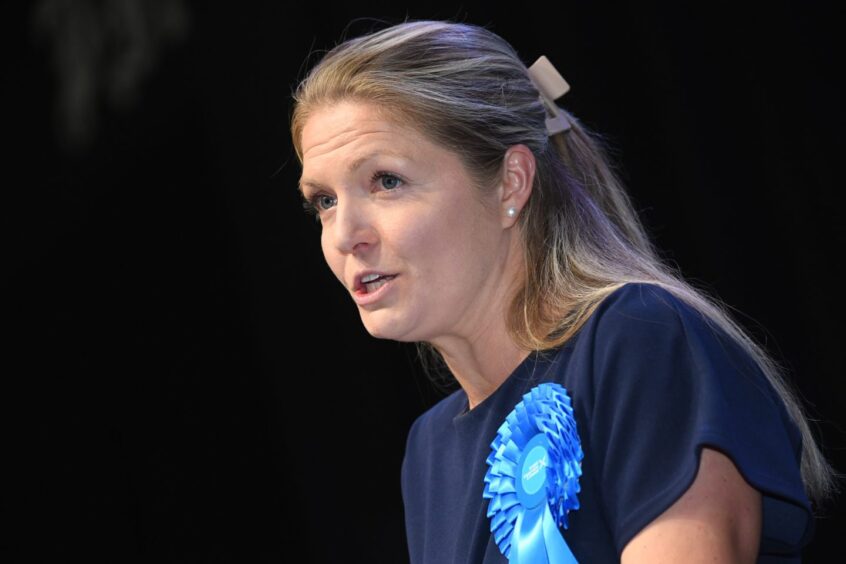Opposition parties criticised the lack of detail contained within Labour’s GB Energy bill as energy secretary Ed Miliband introduced it for its second reading in Westminster today.
At the end of a long day of debate, members of parliament ultimately decided to vote in favour of amendments to the Great British Energy Bill.
Conservative shadow energy security secretary Claire Coutinho lambasted the document’s lack of details.
“This Bill is four pages long. There’s barely anything in it,” Coutinho said.
She argued that there was not enough detail on how the Labour government aims to deliver promises of reducing energy prices.
MP for West Aberdeenshire and Kincardine Andrew Bowie described GB Energy as an “unnecessary and costly gimmick.”
The shadow energy security secretary added: “This is a four-page Bill in which the Secretary of State is asking for £8 billion of taxpayers’ money while setting out no investment plan, no figures for the energy that will be produced, no numbers for the energy bill savings or carbon emission reductions, not even a timeline.
“And let’s be honest, I doubt it can deliver any of the things that he’s promised, so what he’s asking for is £8 billion of taxpayers’ money for a completely blank cheque, for an energy company that won’t cut your bills or turn a profit by 2030.”
The proposed state-owned firm was also found to be lacking on details, something that Coutinho blamed on energy secretary Ed Miliband’s little background in the private sector.
Energy minister Michael Shanks fought back as he said: “Unlike previous governments, this government is committed to the benefits of public ownership in the UK and we want UK citizens and taxpayers to own parts of our infrastructure too.
“Great British Energy will drive clean energy deployment, boost energy independence and generate benefits for all parts of the United Kingdom. It will deliver for the British people, creating good jobs, delivering profits and demonstrating international leadership.”
‘We already have widespread state ownership’… just not British
Opening the debate, Miliband argued that the Great British Energy Bill will “deliver British public ownership back at the heart of our energy system.”
He also pointed to public support for the state-owned firm among both Labour and Conservative voters.
He added: “Even before this Bill, we already have widespread state ownership of our energy assets in Britain – by other countries: Denmark, Sweden, Norway and France, through their own state-owned companies.
“Indeed, get this, the city of Munich owns more of our offshore wind capacity than the British Government.”
Shanks commented: “The UK faced immense challenges, from energy insecurity and our overreliance on volatile fossil fuel markets to the cost of living crisis and a climate crisis.
“This government is determined to address these challenges with clean energy being a key part of the solution. Other countries have already seized the opportunity of publically-owned energy generation companies which has left Britain behind.
This comes as DNV’s CEO told Energy Voice that the UK government should learn lessons from Denmark’s strategy and its “grand plan view”.
Miliband added: “Great British energy will deliver a local power plan, working with local authorities, combined authorities, and communities to deliver the biggest expansion of support for community-owned energy in history.”
However, Liberal Democrats and Conservatives questioned local engagement as the Bill yet again left readers wanting for details.
GB Energy headquarters uncertainty
Rumours of where Labour’s state-owned energy firm will set up shop reached fever-pitch on Tuesday as Aberdeen was unofficially named as the headquarters.
Previously, Labour has committed to GB Energy being headquartered in Scotland and has since narrowed the list of possible locations to Aberdeen, Edinburgh and Glasgow.
This is not something that escaped the notice of Harriet Cross MP for Gordon and Buchan.
She fought for GB Energy to open its doors in Aberdeen to continue the north-east of Scotland’s energy sector heritage, labelling the city the “energy capital of Europe” for the past 50 years.
The north-east politician said that the Granite City is “the most logical choice for the headquarters” of GB Energy.
Bowie added that ministers should end the “disrespect” being shown to the people of Aberdeen by bringing to an end the “will they, won’t they game regarding the location of GB Energy’s HQ.”
Cross said: “First I must address the reports that Great British Energy may be headquartered in Aberdeen and of course, the government are still yet to confirm this saying it’s still speculation.
“But, the manner in which the government have managed this announcement speaks volumes.
“The ambiguity, the speculation and the joking about when an announcement might be made then just saying it will be in ‘Scotland’ does absolutely nothing to help with the speculation, delayed decisions or any sort of confidence in the industry.
“These are the layers of uncertainty that are currently driving away investment and making a less secure job environment in north-east Scotland.”
Previously, Shanks appeared in Aberdeen and jokingly announced that GB Energy would be in Scotland, something that had previously been stated.
‘It is not investment that is needed’
Labour’s state-owned firm aims to financially support green energy developments to speed up the UK’s energy transitions.
However, Cross said that “it is not investment that is needed” for the future of Scotland’s energy sector.
She said what was needed was “a stable, fair, globally competitive market for our national and multinational companies.”
This comes as UK oil and gas operators await a tax hike to come into play as investment allowances in the Energy Profits Levy close.
She called for clarity on how many of the jobs GB Energy is set to create will be based in the north-east of Scotland as she said people in the region “want, and indeed need, to know where these jobs will be.”
Recommended for you



 © Yui Mok/PA Wire
© Yui Mok/PA Wire © Supplied by PA
© Supplied by PA © Supplied by Kami Thomson/DC Thom
© Supplied by Kami Thomson/DC Thom






